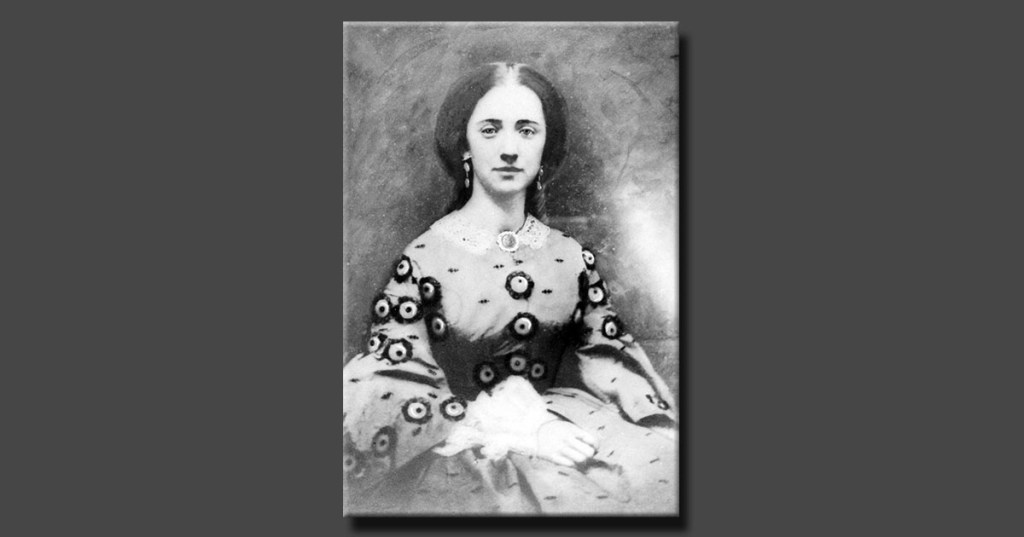WOMEN’S HISTORY MONTH: Mary McCoy, Athens College’s salvation in an age of crisis
Published 5:00 am Thursday, March 12, 2020

- Mary Moore McCoy.
Editor’s Note: In honor of Women’s History Month, The News Courier and Limestone County Archives are celebrating some of Limestone County’s many impactful and history-making women. Each Thursday, The News Courier will publish the story of one of these incredible people, and readers can learn more about women’s history in Limestone County by visiting “Notable Women of Limestone,” a special exhibit on display through the end of March at the Limestone County Archives.
In 1904, Athens College was in dire straits and ready to take desperate measures to keep the doors open at Alabama’s oldest institution of higher learning — even if it meant hiring as president a woman barely out of her 20s.
The Methodist-run college had just lost one president with the resignation of Dr. E. M. Glenn, and when the board offered the job to their top pick, the Rev. J. T. Morris, he turned them down. Their difficulty didn’t have to do with the quality of the school as much as it did economics: The Athens College president was personally responsible for the finances of the school, and if any money was left over from the school’s operations, then he or she was paid. Most folks, particularly men with mouths to feed, simply could not afford to support their families and the college out of their own pockets.
Enter Mary Norman Moore, a North Alabama native, a single woman, the secretary and bookkeeper for the Alabama Christian Advocate in Nashville, and a protégé of “Madame” Jane Hamilton Childs, the first female president of Athens College for Women, as it was known at the time. She was perfect for the job, and hopes were high for this energetic 30-year-old. The Huntsville Democrat of Sept. 30, 1904, editorialized: “With the proper local encouragement and support, President Miss Moore will place old Athens Female College back on the high plane that Madame Childs once placed it. She will make her mark in the educational field.”
Those prophetic words proved to be fulfilled in Moore, who served two separate terms as president of the College. Within just two years, South Journal reported Athens College was having the most successful year in its history. The college was bursting at the seams with 112 boarding and 82 day students, and it had to turn 50 boarding students away for lack of accommodations. Moore spent more than $7,000 on improvements, a tidy sum at the turn of the century, and the Methodist conference recommended she be given authority to go before churches on a fundraising mission for the college.
Moore had quite a knack for raising money for Athens College, as shown when the college board nixed her plans to build a music hall. Moore resigned her post over the disagreement, but when the board relented and asked her to stay, she went to Athens businessmen and raised $12,000 for the music hall in one day.
Many of Moore’s accomplishments live on at Athens State University today. For example, Moore is the reason cows no longer graze on the campus. They did until Moore worked with the City of Athens to pass ordinances restricting grazing animals within the city limits. Moore is also the reason Founders Hall installed electric lights, and she was the president who oversaw construction of Brown Hall and McCandless Hall.
Moore’s greatest impact, however, was raising the school’s classification within the Methodist board of education from “unclassified” in 1908 to “A-Grade Classification” in 1913.
Moore’s tireless devotion to Athens College took its toll on her financially. She donated more than $60,000 of her own money to the school during her 12-year term.
It also took a toll physically. In 1916, Moore, by then engaged to Bishop James H. McCoy, wrote: “Twelve years of work has exhausted me. I was expecting to be married within two years, the time estimate for full admission of the college into the Southern Association. Specialists of repute had told me that this exhaustion, manifested in retarded heart action, while not likely to produce death, was threatening invalidism.”
With this in mind, she resigned the presidency, having crafted a legacy of growth and achievement during a time when Athens College had anticipated sure failure.



